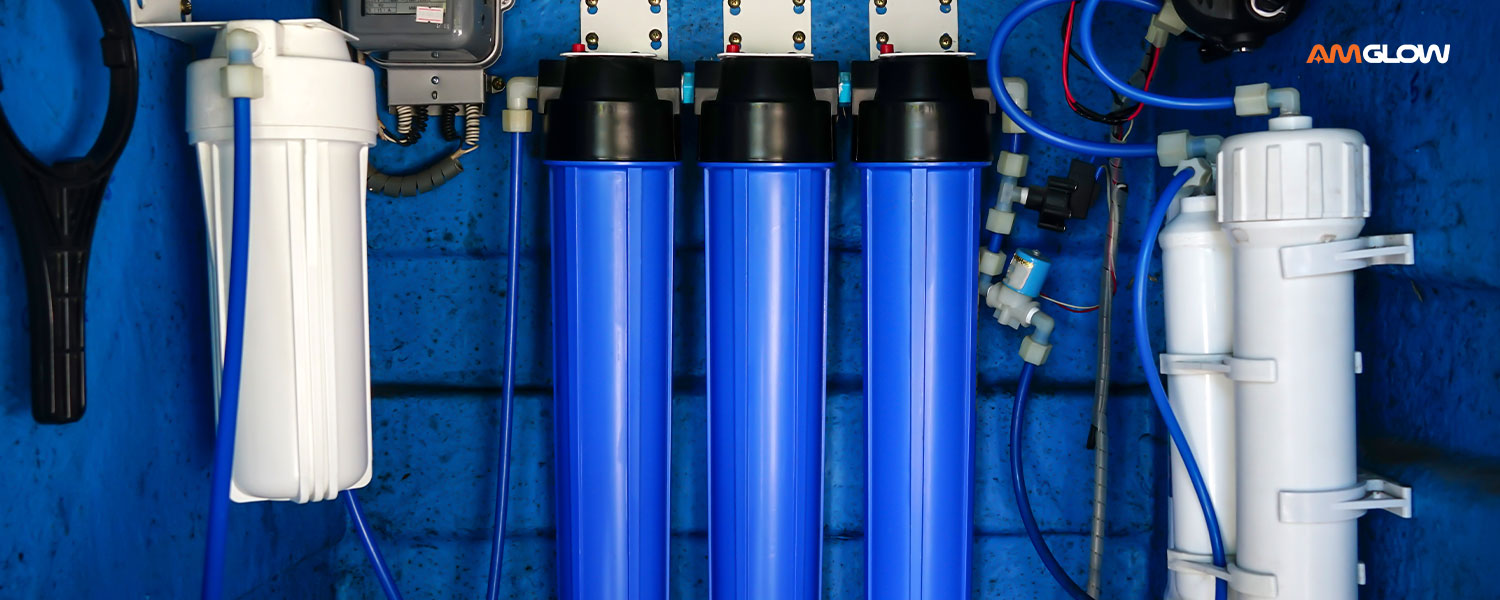Home / Blog / Tap vs. Filtered Water: Why a Water Filter System is Essential
Tap vs. Filtered Water: Why a Water Filter System is Essential

Access to water directly from your supply tape seems more convenient and affordable, but you are unaware of concerns about long-term consumption. However, municipal systems follow regulatory standards. However, they don’t always measure and eliminate all unwanted substances. That’s why the water filter system plays a significant role and is a perfect alternative to tap water. This blog section will discuss the difference betweewan tap and filtered water and which is suitable for daily use.
Tap Water Vs. Filtered Water
Composition and Clarity
- Tap water moves through pipes where it can pick up minerals, chlorine, and other bits that make it look and taste strange.
- Filtered water flows through special layers that catch those bits, giving it a cleaner look.
- The filter removes things you may not see but still affect water quality, like tiny dirt or pipe flakes.
Taste and Odour
Sometimes, tap water creates an unpleasant smell and odd taste due to the use of chemicals and chlorine for treatment.
On the other hand, a water purifier system helps you eliminate these issues, remove all impurities, and leave your water tasting smoother and fresher.
A branded water purifier enables you to remove smells and other materials that make your water heavy.
Residue and Utility
A leaked water pipe may supply polluted water that affects your daily activities, such as bathing, drinking, cooking, washing food, etc.
A filtered water system not only enhances your drinking water experience but also makes it free from watermarks on dishes, glasses, etc.
Laundry with filtered water keeps clothes softer, lasting longer without the harsh touch of hard minerals.
Various Reasons to Invest in a Filtered Water System
Better Everyday Consumption
- Using a filtration water system is the latest trend and sets free users’ minds of water impurities and other residues.
- People drink more filtered water, and people sensitive to allergies can safely use it.
- Freshwater makes fruits and vegetables taste better and stay fresh when washed.
Enhance the Life of Your Appliances
- You may expect a longer life when you clean your coffee makers or dishwashers with filtered water.
- Filters stop minerals from gathering inside machines, helping them work faster and more smoothly.
- Clearwater keeps pipes from clogging or wearing down too quickly.
Comparative Overview – Tap Water vs. Filtered Water
| Aspect | Tap Water | Filtered Water |
|---|---|---|
| Taste | Tastes bitter or strange | Tastes fresh and clean |
| Clarity | Looks cloudy or dusty | Looks bright and clear |
| Odor | Smells like chlorine or metal | Smells clean or not at all |
| Appliance Impact | Leaves white spots and buildup | Protects machines and pipes |
| Cost Over Time | Cheaper at first, but may cost more later | Saves money in the long run |
| Health Considerations | May contain extra minerals or particles | Removes what isn’t needed |
Why Tap Water Isn’t Always the Best Option
Treatment Doesn’t Mean Purity
- Even after treatment, tap water runs through old pipes that are clogged with dirt or other materials.
- Chlorine and other chemicals stay in the water and may bother some people.
- If something breaks in the system, dirty water can rush into homes without warning.
Limited Control Over Quality
- People can’t decide how the city cleans water or what chemicals get added.
- Rusty or old pipes can affect the water before it reaches the tap.
- Storms or breaks in pipes may cause fast changes in water quality.
Cumulative Effects on Usage
- Over time, tap water can stain dishes, dull clothing, and change how food tastes.
- Chlorine or minerals can dry out skin and hair after bathing.
- Some people feel better using cleaner water, especially if they are more sensitive.
Choosing a Water Filter System – A Smart Decision
Tailored Water Quality
- Filters can catch different things, like sand, chlorine, or minerals, based on the water’s needs.
- People can choose a filter that works best for their home and the water in their area.
- Filters give better water for drinking, brushing teeth, and cooking.
Seamless Integration with Modern Living
- Today’s filters fit easily under sinks or inside cabinets without changing the home setup.
- Most filters are easy to clean or change, so they stay useful without much effort.
- These systems connect well with new appliances and don’t slow water flow.
Long-Term Water Confidence
- A good system gives safe, clean water from every faucet in the house.
- Clean water helps people feel sure when cooking, drinking, or cleaning.
- A filter comforts families, knowing the water they use daily is safe and fresh.
Conclusion
Tap water performs numerous tasks, yet it frequently fails to provide a fresh taste or fulfil individuals’ drinking needs. A water filter for home enhances water for consumption, cooking, cleaning, and even more. It removes unwanted substances, makes appliances perform better, and ensures individuals feel safer. Selecting a water filter for domestic use provides households with cleaner, smoother water on a daily basis. People can use a water filter system rather than taking a risk with what’s in the water. It isn’t merely a healthier option—it’s a wise and permanent move for any household.




